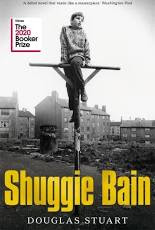For today's National Poetry month post, we've chosen a "Poet of the Week". There are thousands of poets, and we considered quite a few before we arrived at Elizabeth Alexander.
 |
Elizabeth Alexander receiving the W.E.B. Du Bois Medal in 2019.
It is Harvard's highest honor in the field of African and African-American studies. |
She was the Inaugural Poet for Barack Obama's Presidential Inauguration in 2009 with "Praise Song for the Day", but that was the only thing I knew about her. Elizabeth Alexander was an accomplished academic and poet long before that, and continues to be an important voice as a poet, educator, writer, and cultural advocate.
Elizabeth Alexander was born in Harlem, but grew up in Washington, D.C., the daughter of former US Secretary of the Army and Equal Employment Opportunity Commission chairman, Clifford Alexander Jr. and Adele Logan Alexander, a professor of African-American women's history at George Washington University. I can only imagine the conversations that may have taken place around the family dinner table! Ms. Alexander holds degrees from Yale, Boston University, and the University of Pennsylvania. She is currently the president of The Andrew W. Mellon Foundation, the nation’s largest funder in arts and culture, and humanities in higher education.

She is not only an academic. Her poetry book, American Sublime, was nominated for the Pulitzer Prize and The Light of the World was nominated for the Pulitzer in the Biography/Autobiography category. Ms. Alexander has authored or co-authored 14 books. She writes about what she knows — race, gender, politics, history, and motherhood. I think that she has written something for everyone.
Since this is a celebration of National Poetry Month, I'd like to share one of Elizabeth Alexander's poems. This one is entitled "Race" and it was intriguing to me as soon as I read it. It's a poem about "Great-Uncle Paul" passing as white and the family and wider implications.
Race
Elizabeth Alexander
Sometimes I think about Great-Uncle Paul who left Tuskegee,
Alabama to become a forester in Oregon and in so doing
became fundamentally white for the rest of his life, except
when he traveled without his white wife to visit his siblings—
now in New York, now in Harlem, USA—just as pale-skinned,
as straight-haired, as blue-eyed as Paul, and black. Paul never told anyone
he was white, he just didn’t say that he was black, and who could imagine,
an Oregon forester in 1930 as anything other than white?
The siblings in Harlem each morning ensured
no one confused them for anything other than what they were, black.
They were black! Brown-skinned spouses reduced confusion.
Many others have told, and not told, this tale.
When Paul came East alone he was as they were, their brother.
The poet invents heroic moments where the pale black ancestor stands up
on behalf of the race. The poet imagines Great-Uncle Paul
in cool, sagey groves counting rings in redwood trunks,
imagines pencil markings in a ledger book, classifications,
imagines a sidelong look from an ivory spouse who is learning
her husband’s caesuras. She can see silent spaces
but not what they signify, graphite markings in a forester’s code.
Many others have told, and not told, this tale.
The one time Great-Uncle Paul brought his wife to New York
he asked his siblings not to bring their spouses,
and that is where the story ends: ivory siblings who would not
see their brother without their telltale spouses.
What a strange thing is “race,” and family, stranger still.
Here a poem tells a story, a story about race.
Alexander, Elizabeth. "Race". Antebellum Dream Book, Graywolf Press, 2001
You can read a Poem Guide from the Poetry Foundation here.
Be sure to visit Kym, Kat, and Sarah today to read their Elizabeth Alexander poems and join us next week for some poetry about New Beginnings!





























